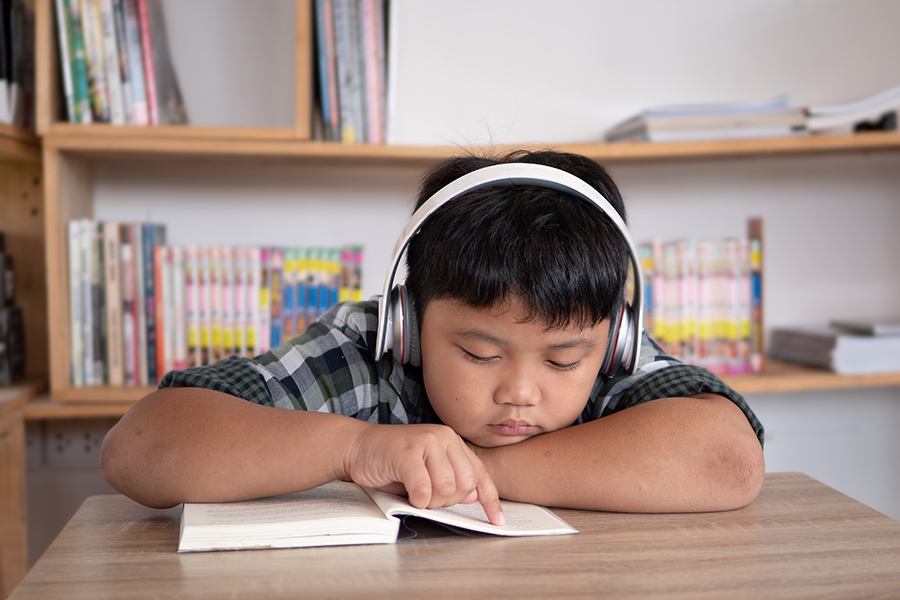The new school year is upon us! For children with dyslexia, school work, homework, and any task that includes reading or writing is tough. Children with dyslexia are relieved during the summer when this demand is decreased significantly, and begin to dread the new school year with all of its perceived difficulties.
Common School-Related Behaviors Among Children with Dyslexia
You may see some of these behaviors at school, but your child is probably pulling it together all day long. In the meantime they are truly struggling, using a ton of energy and effort to get through reading tasks, writing tasks, and trying to keep up with the other children in the class. For many children, they are aware that the other students are able to read and write with ease; they know that the other students in their class can finish an assignment quickly. Emotionally, they take it all on, all day long. Their self esteem suffers, they can become anxious, and slowly, they begin to hate school. They want to do well, they wish they could pick up a paper and pencil and allow the thoughts and words to come out of their heads and pencil. But it’s difficult. Really difficult.
You may find a child who comes home each day and is drained. Exhausted. A child who wants a break from any more academically-related tasks. Yet, there is homework to be completed, so meltdowns are likely. Having to sit down and do anything else using a pencil, paper or book leads to tears, negotiating, refusing.
To recap, common school-related behaviors and symptoms among children with dyslexia include:
- Low self-esteem
- Anxiety
- Exhaustion
- Emotional meltdowns
- Hating school
Signs Noticed by Teachers
Most likely, your child’s teacher has noticed that your child is struggling to identify letters and their sounds consistently. Your child may be struggling to write the letters in her name consistently. Your child’s kindergarten teacher will notice these things as the school year progresses and will likely point them out to you. Although letter and number reversals are developmentally appropriate until the end of first grade, any reversals that continue past first grade should be noted.
Your child may be identified as needing basic skills instruction (BSI) in the areas of reading and writing, but with little-to-no progress. I know, I speak from experience. I even hired a tutor to review letters and their sounds for eight months, and my daughter still couldn’t recognize the letters of the alphabet consistently. This is when I knew that it was more than just a need for time or maturation.
How to Approach Dyslexia at School
First things first: if you suspect your child has dyslexia, consult with your pediatrician. He or she will likely refer you to a psychologist who can perform a psycho-educational evaluation to look at areas of academic functioning as well as cognitive or intellectual capability. If your child has a specific learning disability within the area of reading, writing, or reading comprehension, a diagnosis of dyslexia can be provided.
Once you have this diagnosis, take the report generated by the psychologist to your Child Study Team (learn more about Child Study Teams (learn more about Child Study Teams here, or here, or over here) and request an Initial Identification meeting. Put your request in writing (see sample letter here). Share the report and request an Individualized Education Plan (IEP).
You can learn more about IEPs below:
- I&RS vs. 504 Accommodation Plan vs. IEP
- Special Education: How I Prepare for an IEP Meeting
- How to Be Ready for IEP Season: Parent Tips
You are then requesting Pull-Out Services within the areas of reading and writing with a special education teacher who can modify the curriculum for your child. The program that is most empirically-validated for dyslexia is known as the Orton Gillingham program, a multisensory curriculum.
Classroom Accommodations
So which accommodations can you advocate for your child at school to help make this school year a less stressful one?
- Provide multi-sensory instruction as well as multisensory demonstration of a task
- Provide a visual in conjunction with a newly learned concept in an effort to help student to develop a visual representation. This may serve to improve memory and learning for future recall
- Present one/two directions or tasks, as student is likely to become overwhelmed and shut down
- Present small chunks of new information that contains many details and allow for consolidation of information before presenting more new information. This is due to student being able to process and hold one or two chunks of information at one time.
- Present less information and greater white space on a worksheet or hand out
- Ask student if he/she is ready prior to presenting new information or providing instructions
- Read out loud to student
- Break down a complex task into smaller tasks (no more than one or two steps)
- Provide assessments that use multiple choice rather than fill in the blank or an open ended format, as student is better able to recognize rather than retrieve information he has learned
- Discuss newly presented information out loud as this helps student to make connections and engage in higher level thinking
- Provide audible books
- Encourage student to edit written work out loud so that he/she may hear inconsistencies in logic, and areas where more information is needed
- Provide student with positive praise, encouragement and feedback
- Provide worksheets with a few items of information, and greater white space
- Ask student to repeat back instructions or information to ensure accuracy of comprehension
Dr. Liz Matheis is a licensed Clinical Psychologist and certified School Psychologist who specializes in working with children with ADHD, Anxiety, Autism, Learning Disabilities, and behavioral struggles. She is also mom to three children, one with special needs. Her practice, Psychological and Education Consulting, is located in Livingston, New Jersey.
You may also be interested in:















